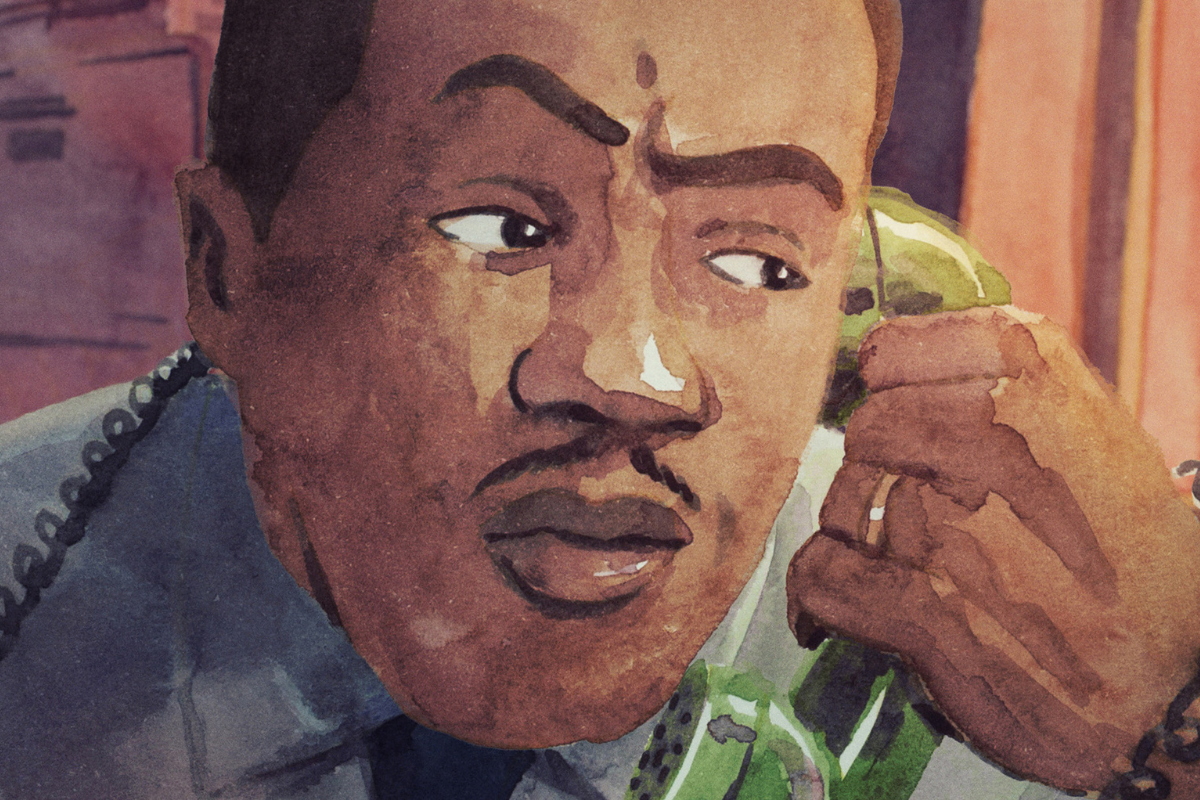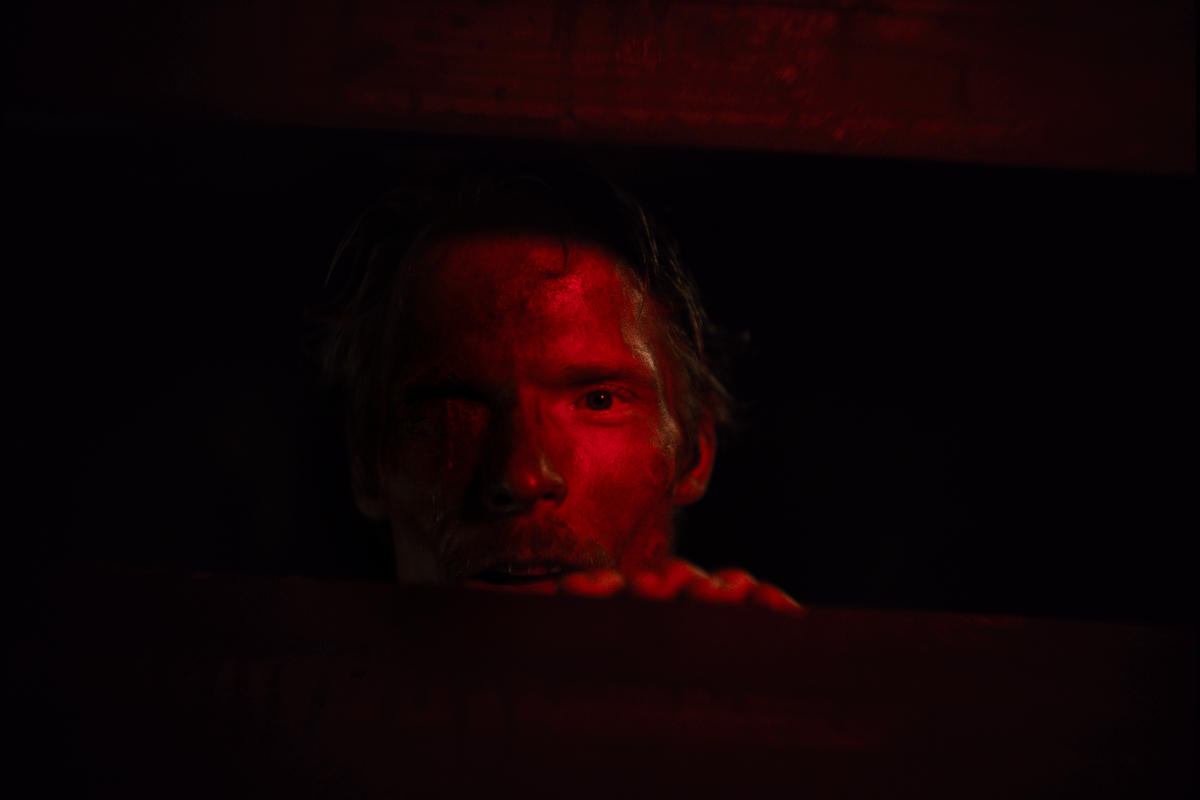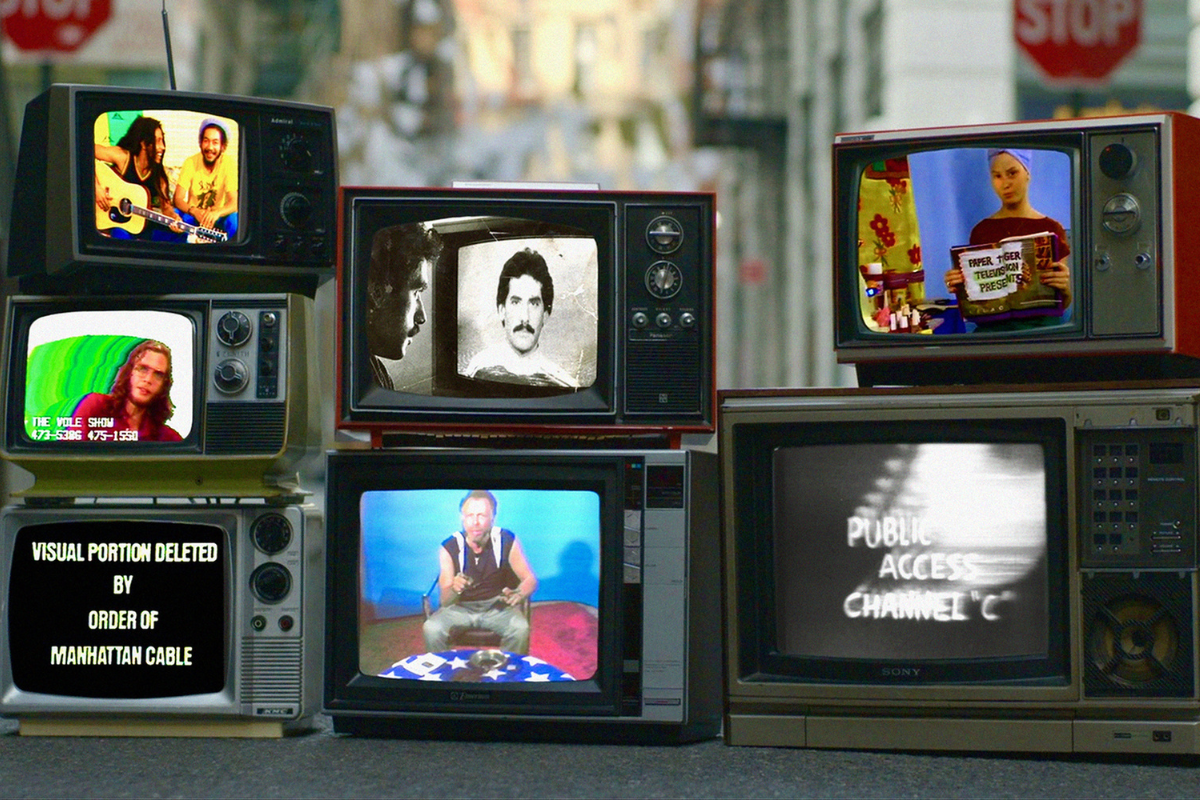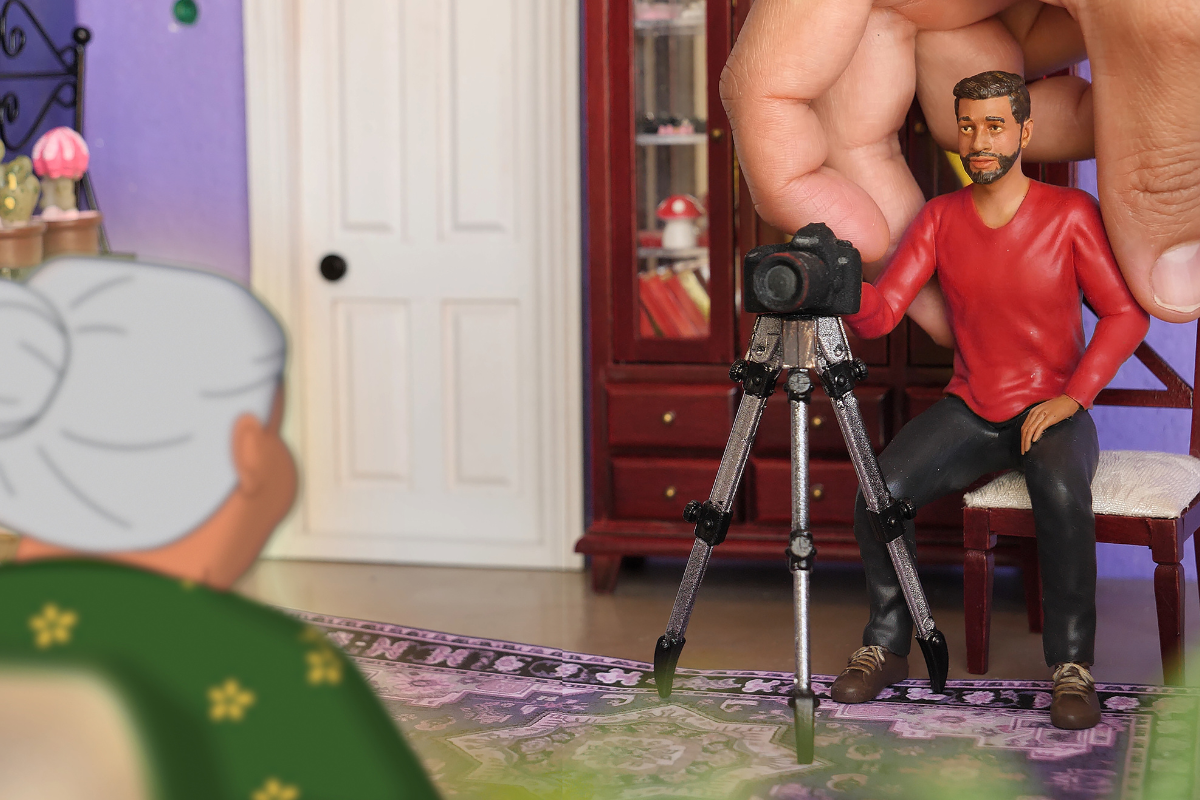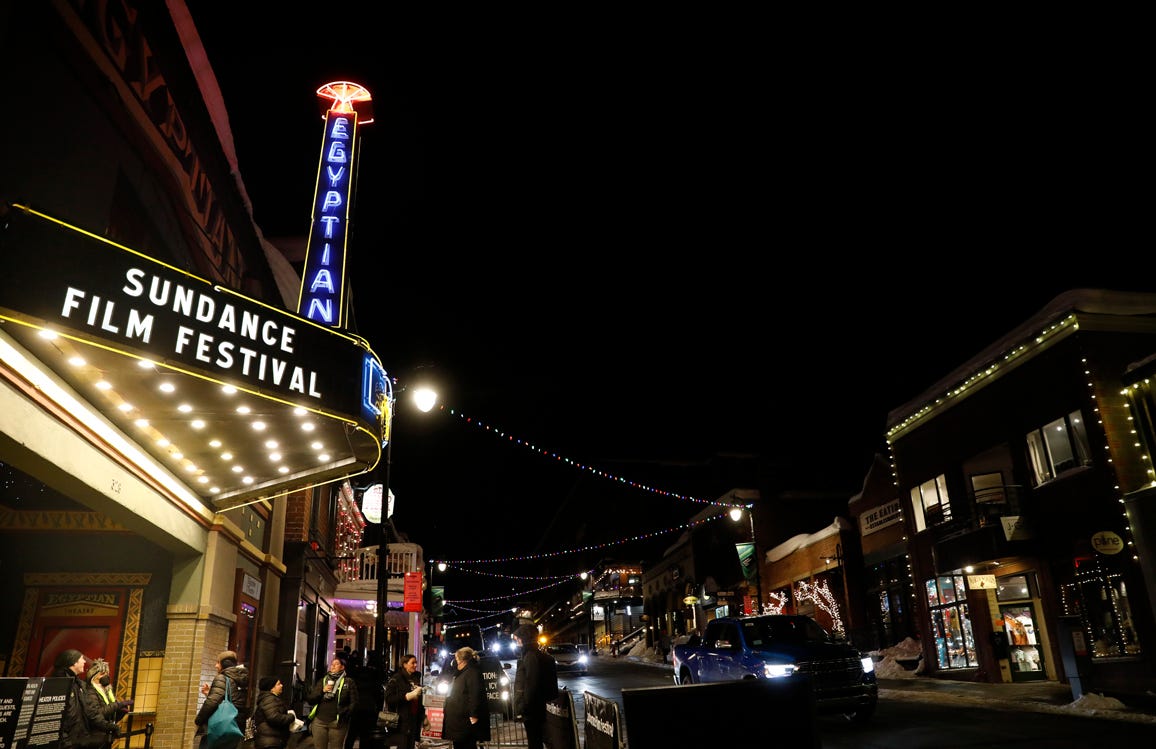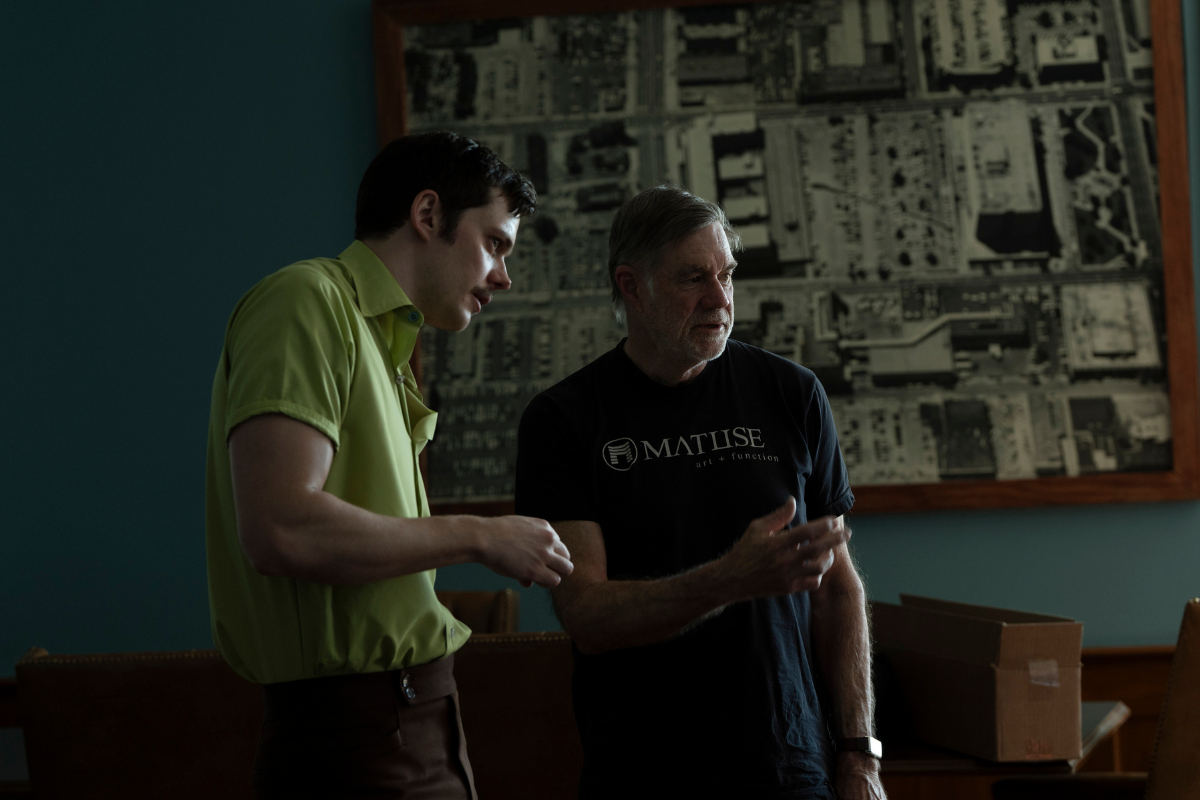Redefining a Genre with ‘The Voyeurs’ Writer-Director Michael Mohan
Script’s Editor Sadie Dean speaks one-on-one with ‘The Voyeurs’ writer-director Michael Mohan about his new film, his new path as an erotic-thriller filmmaker, what sparked the idea for ‘The Voyeurs’, and how he broke into the industry. Plus, he offers invaluable advice for first-time filmmakers.
The Voyeurs follows a young couple (Sydney Sweeney & Justice Smith) who move into a beautiful loft apartment in Downtown Montreal and find themselves being increasingly interested in the sex life of their eccentric neighbors (Natasha Liu Bordizzo & Ben Hardy) across the street. What starts out as an innocent curiosity slowly turns into an unhealthy obsession, after they discover that one of these neighbors is cheating on the other. Temptation and desire cause their lives to become tangled together in unexpected ways, leading to deadly consequences.
Writer-director Michael Mohan intuitively tips his hat at thriller auteurs that have come before him with his new thriller film The Voyeurs. It's certainly a film that keeps you on the edge of your seat, as you take note of every subtle clue that Michael delicately places before you as he fully leans into his masterfully crafted twists and turns.
I had the great pleasure of speaking with Michael one-on-one about his new film, his new path as an erotic-thriller filmmaker, what sparked the idea for The Voyeurs, and how he broke into the industry. Plus, he offers invaluable advice for first-time filmmakers.
This interview has been edited for content and clarity.
Sadie Dean: Was Rear Window a film that kind of inspired this modern retelling of it?
Michael Mohan: I mean, it's a binocular movie, right? That's the first and greatest one. I was visiting a friend who had just moved to Downtown LA, and I was going over to his place and checking it out. And I looked out the window and across the street, the couple that lived across from him were walking around their apartment completely naked in the middle of the day. And my friend, he even had bought some vintage binoculars from the pawn shop down the street and he was like, “you want to take a closer look?” And I'm like, “I want to, yeah, but I shouldn't.” That push and pull was sort of a part of it. Suddenly, that sort of sparked an idea that then eventually birthed this movie.
Sadie: That's all it takes is that one little human connection to it. That seed. I had the great joy of seeing your film, Save the Date at Sundance years ago.
Michael: Oh, wow!
Sadie: And I really enjoy your handling of characters in real situations and along with your character development. And with this, your character development is very subtle, but it works. What is your process for fleshing out characters, especially these couples in particular?
Michael: I just tried to write well. I just try to write characters that feel like me or my friends, you know? And the different struggles that we all sort of contend with. In this case, eventually, when I knew it was going to be Sydney, I had worked with her prior, in this show that I co-created with the Ben York Jones, Everything Sucks, and so I knew her voice. And so, after she signed on to do the movie, I could then have the good fortune of being able to polish it in her voice, because I knew her as a human too - I knew her outside of making the show. I was really fortunate in those regards.
I think all of my characters are kind of a little bit dorky. They're all people with the same insecurities that I think all of us have. And I guess, to go specific to this film, the whole thing sort of starts with this little bit of grass is greener syndrome, right? Where you're looking outside of your apartment and you see something that maybe makes your own life feel dissatisfying by comparison. And I think that push and pull has gotten way worse in the last 10 years with Instagram, right? Because now we, at any moment, we can look at this app and get this window into other people's lives that we know is inaccurate, and know has been curated, and that we know has been filtered and face tuned. And it's attainable. But we know this is detrimental to our mental health. And yet, our brains are like, “No, no, give me more.” Just that whole exploration of why do we do that? It's sort of at the crux of where I sort of wanted to build these characters that would represent the two sides of that.
Sadie: And there's kind of like this linear thing of who's on the right side the grass is greener, and you do this really great thing, where along with those twists, you’re thinking who am I going to root for? Who's going heighten the stakes even more, and really lean into it? And you're going back and forth and trying to justify it.
Michael: Well, that's like part of the tradition of the movies that are an erotic thriller, right? And when you say erotic thriller, that might mean different things. Like some people they think that means, Body Heat or Wild Things, which are more like steamy neo-noirs, right? Sweaty neo-noirs is what I call them. And then you also have blank from hell movies, like the babysitter from hell, The Hand That Rocks the Cradle or the roommate from hell, Single White Female. But this erotic thriller is what I call the steamy moral dilemma movie. Like Unfaithful or Indecent Proposal, which just like when you're presented with that question, would you sleep with Robert Redford and cheat on your husband for a million dollars? Instantly, you have an opinion, you have a strong opinion. And that opinion might be completely different from the person sitting next to you. And after the movie is over, you get to have these fun debates just by going, what would you do? And so exactly, my hope was that The Voyeurs would sort of be a part of that sort of tradition of being a film that inspires a very heated conversation that brings you to vulnerable places, long after long after the film's over.
Sadie: Yeah, absolutely. And a million dollars for Robert Redford, is it Robert Redford now or Robert Redford 30 years ago?
Michael: 1993. Right? I mean, I’d pay a million bucks. It's Robert Redford. I mean, come on. [laughs]
Sadie: [laughs] You’re right! Taking a step back, what was the movie or maybe TV show that made you want to become a filmmaker?
Michael: Oh, like way back when. For me it was when I was five – it’s not unique at all. I went to go see Back to the Future. And it's my earliest memory, I still remember it. I remember riding home in the maroon Oldsmobile of Elaine, who is my best friend's mom, and it was pouring rain, we had just gone to the Tri-Boro cinema in North Attleboro, Massachusetts. And I didn't know that I wanted to be a director, I just knew I wanted to take part in the magic of the joy that I felt after watching that film. And so that's what it was for me. And then in the 90s when I was in high school, on Bravo before they did like Real Housewives, they would actually play independent films, late into the night. That’s when I saw films like Clerks and Slacker. And that's where it actually felt attainable to me, where it was like, you don't have to be part of an industry that you don't have a foothold in - person made this, you know? But despite that, I still moved to Southern California.
I went to a film school called Chapman University. And I didn't have any connections to the film industry whatsoever. And I knew I just needed an internship, because if I got an internship that could lead to a job, and I knew that when I graduated, the last thing I wanted to do was have to move back to Massachusetts. They would do test screenings of movies down there. And when they would recruit people, but if you're a film student, you can't go. And so, I would always go and there was this one that they had, I saw the title of the movie and I was like, I'm not going to this one, this is not for me. And then I Googled it and I saw that it was being it was a film that played Sundance, and Fox Searchlight was releasing it and I was just like ‘Fox Searchlight, that's my jam, I'm gonna go find someone at this test screening, and talk them into hiring me for an internship.’ I'm going to get there early. I'm going to see if I can be part of the focus group that happens afterward. And so, got to the theater early, couldn't find the right person to talk to, I finally found him and he's like, “Oh, yeah, the focus groups already full.” And I was like, “ah man.” And so I watch the film and on the way out, I was looking for anybody that I could like, just be like, ‘I'm a person, I need an internship.’ And they were handing out flyers, the movie was Super Troopers, and they were like, email your thoughts and comments to Jennifer M at Fox dot com. I was like, ‘Jennifer M at Fox dot com. This is my in. Jennifer M is hiring me for an internship tomorrow.’ So got back to my dorm room. And I stayed up all night, writing the longest email of my life. It was so precocious, it was like, here's what you have to do to fix your movie. Here's what you need to do to market the movie. Don't think about releasing it on this date, you should really think about releasing it on this date. And by the way, I'm a film student, and it's in your best interest to call me tomorrow and offer me an internship. I press send at five in the morning. I slept for like three hours, I went to an 8 am class. And when I got back - this was before I had a cell phone, that's how old I am – my roommate was like, “What did you do? And I was like, “What do you mean what did I do?” He's like, “The marketing department from Fox called you, the creative advertising department at Fox called you some executives from Fox Searchlight called you, what happened?” Turns out, Jennifer M at Fox dot com forwarded my email to Peter Rice, who was the then president of Fox Searchlight Pictures, who forwarded it to the entire company and said, “Whoever this kid is hire him.” And so I went in, and I was able to sort of choose where I wanted to have an internship.
Sadie: That is incredible. I don't know if you can get away with doing that today.
Michael: I just had nothing to lose. I didn't have a foothold. And so, I worked for the subdivision that made short films with new directors. It was called Search Lab. And my job was to be sort of the person that helped the filmmakers navigate getting equipment or helping them with insurance and stuff like that. And what I did was [laughs] I would just say like for my own short films, I would just pretend that I was part of this program and like steal grip and lighting from the Fox grip and lighting department and the wardrobe department, like a lot. And then even so much that my senior thesis, I actually snuck onto the Fox lot and filmed a portion of it there. And the security guys, they kind of knew me and they'd be like, “Mike, wait, we don't have you on the list. Why are you you're shooting here? It's a Search Lab shoot?” And I'm like, “Yeah, it's a Search Lab shoot,” and they go off in their golf cart, and I turn around and call action. [laughs]
Sadie: Having that push and drive to do it. And I love how you framed it in that you had nothing to lose at that time. You had so much to gain, and you reaped the rewards for that. I think that's awesome.
Michael: I reaped the rewards with a minimum wage job working for the studio executives. [laughs]
Sadie: [laughs] Yeah, exactly. Everyone's dream.
Michael: And a two-hour commute in the morning and an hour commute home. But yeah, it was worth it.
Sadie: What kind of stories are you driven to tell?
Michael: It’s changed through the years. Now I'm just all about erotic thrillers, that's the lane I want to carve. I want to redefine for a modern audience. I'd made films, like Save the Date. And I was writing relationship story-based stories. And at a certain point, you know, I found it to be less challenging. When you present the film to audiences, I just felt like there was a lack of tension. And so, what I wanted to do was, I wanted to try to actively see if I could continue to sort of tell these relatable stories with characters that feel like your friends, but also infuse a bit of tension into it. And in 2015, I made this short film called Pink Grapefruit, it's like 10 minutes long. To try to do that, the milieu was really simple, it's about a couple who bring two single friends out to Palm Springs for a long weekend to try to hook them up. And the tension that the characters feel, being put in this sort of arranged situation is hopefully underlined in the style. Because we shot it like a European thriller, kind of like Swimming Pool or Stranger by the Lake. And we played Sundance and we were so lucky to win South by Southwest.
I wanted to figure out how to take what I had sort of cultivated with that short film and there was an earlier short film that I had made called Ex-Sex as well, that sort of explored the idea of using sex as a story, because oftentimes, when you see sex in movies, it doesn't need to be there. And oftentimes, it's often really chased, because sex in reality it’s often awkward, and it's sometimes funny and sometimes sad. It's never depicted as such, it's always one emotional tonality. And so trying to take what sort of I had done successfully in these short films that nobody had ever seen and figure out OK, how can I retain what was special to this work while bringing it to a broader canvas? And that's truly when I discovered the lost genre of erotic thrillers and I found that the good ones are there, I call it like, healthy junk food, because it's so easy to put on. They're so fun to watch, but the great ones have complex relationships and complex themes. And so that was sort of my way of starting to dip my toes in this. This film, it's sort of just the next evolution in my career, where I can sort of continue to do well, I was able to do the instinctual things I was able to do in these short films, but paint on a bigger canvas and, redefined the genre for the audience.
Sadie: I hope you get the opportunity to do more. Knowing that you're a multi-hyphenate as an independent filmmaker, any advice for an indie filmmaker who is a multi-hyphenate like yourself who is actually just about to set foot on their very first film set?
Michael: Oh, that's a great question. How much time do I have? Because I could talk about this for like three hours. [laughs] I don't want to sound pessimistic, because it's exciting for someone to make this career path. But it's also scary because it's a long road, right? And I always think about that poem by Stephen Crane, A Man Said to the Universe. I hope I get it, right – A man said to the universe, “Sir, I exist!” However, replied the universe, “The fact has not created in me a sense of obligation.” And I love that poem because that's like when you release a movie. You work really, really, really hard. You're like, “Oh, my God, world, check this out!” And with this new film, it's been six years, and the release in a weird way, it's the gift. It's like the reward for it, but it's also up to you to make the next one, the universe isn't going to hand you your next movie. I mean, if you're lucky, maybe it will. But like, for me, it's always just been about, ‘OK I made a film. Now I need to figure out how to make the next one.’ And it's on me, you know?
I think the greatest advice I could give anybody is even if you make a feature film, and you think now I've made features, this is what I do, making a short film is super achievable, and might actually help you make your next film faster, or make your next film better. I've made two feature films, and then made a short film - that short film Pink Grapefruit. And when I went into Amazon to pitch them The Voyeurs, one of the executives was a former film professor who used to teach that short film as part of his curriculum. And so, I was able to walk in there with this thing that he had a very deep knowledge in terms of what my aesthetic was, and sort of what my approach was, because he literally taught it. So, you never know down the line how things are going to pay off. And at the start, it might feel like the universe doesn't care. But as you build a body of work, and build, hopefully, a reputation of being a good person, which is important, but once you do that, hopefully, things do eventually get easier. But at the start, it really does take a lot of work. And you still have to write with your heart, even if your heart has been broken.
Sadie: This happens to a lot of creatives who start out and they go back to their hometown, which is heartbreaking
Michael: I think I'm also a perfect example of someone who, you know, I've just persevered. And through that perseverance, I've been granted this extremely generous gift of being able to tell these stories for a living and, and if anything, it's made me up my game, because like with this film, once this was happening, I was like, ‘I'm gonna direct this movie as if it's my last because this is all I got.’ I had to put everything I can into it. I'm so excited for people to see it. And I'm also just trying to focus on whatever comes next.
Sadie: Yeah. And put it put everything into that next one as it's your last so we get another The Voyeurs. Thank you so much, Michael, and congrats on the movie. And I'm excited to see what you have next in the pipeline and hopefully, we can all safely go to the movie theaters and see your work on the big screen.
Michael: Thank you for helping spread the word of mouth, I really appreciate it.
The Voyeurs will be available on Amazon Prime Video on September 10th.


